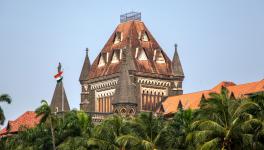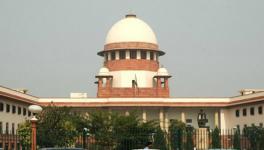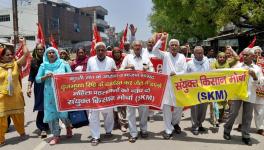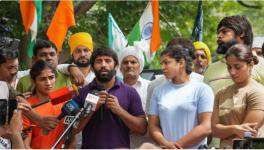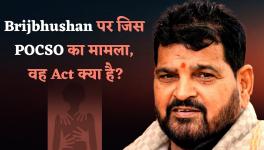No Clarity on Abortion Under POCSO Act Further Traumatises Victims

Representational Image. Image Courtesy: Pixabay
Child sexual abuse resulting in pregnancy and systemic hurdles in securing a reliable and safe abortion persist significantly in the country.
Despite the Medical Termination of Pregnancy Act (MTP), 1971, the Protection of Children from Sexual Offences Act (POCSO), 2012, and the guidelines and protocols for medico-legal care for survivors/victims of sexual violence being clear on the subject, survivors continue to face procedural challenges leading to further trauma.
The systemic issues are due to a lack of clarity on the process of abortion under POCSO for minor survivors of sexual abuse. The police and the Child Welfare Committee are the nodal bodies responsible for care and protection under Section 19(5) of the POCSO Act. The district police unit or the Special Juvenile Police Unit is responsible for providing support and emergency medical care under Rule 6 of the POCSO Rules, 2020.
Despite these provisions, there is a lack of understanding of their respective roles and responsibilities.
Three cases in the Bharuch district of Gujarat capture the process in detail along with systemic challenges faced by child survivors of sexual abuse who want to terminate their pregnancies.
In the first case in 2019, a 14-year-old girl was six weeks pregnant. The doctor said that the pregnancy posed a risk to her life. The police, dealing with the first such case in the district, contacted Premila Varmora, the coordinator of Kanuni Sahay Kendra and a paralegal volunteer with the DLSA, Bharuch, and one of the authors of this report.
Varmora, who too was dealing with such a case for the first time, needed legal support with the doctor saying that a court order was needed for abortion. Subsequently, she filed an application in the Special POCSO Court to find a lawyer. Unfortunately, most lawyers declined to help her owing to the lack of awareness about the MTP Act and the general social stigma surrounding abortion.
Finally, Varmora managed to find a lawyer and they filed an application for abortion in the special court, which ordered another medical examination of the victim. With the doctor’s opinion, she again approached the court, which ordered an abortion.
Due to the lack of proper medical facilities in Bharuch, all the tests were repeated in Baroda. She was finally admitted for an abortion. The girl had to undergo medical examination thrice whereas, according to Rule 6(7), there is no provision for court intervention in abortion.
In the second case, Varmora again faced the problem of accessing a lawyer to file an application in the special court. A panel lawyer of DLSA agreed to file an application and got an order on the same day.
A six-seven weeks pregnant girl who was in serious condition was sent directly to Baroda for further tests. It was recommended that she undergo an abortion. A woman police officer stayed with the victim and her family in the hospital for three days. The positive aspect of these two cases was the police’s proactive role.
The legal problem here was that there is nothing in the MTP Act or in the POCSO Act and Rules that delineate a clear procedure for abortion in such cases. Consequently, doctors do not proceed without a court order, delaying the process further.
While Bharuch police were proactive, their counterparts in Ankleshwar municipality, just 20 km away, washed their hand of the responsibility to help the 11-year-old victim. The minor, like in the earlier two cases, was from a marginalised and financially poor background and could not proceed without legal assistance.
The doctor at the Bharuch Civil Hospital had advised the victim’s family and informed the police on the 17th of that month that abortion would have to be done at the earliest as she was six-seven weeks pregnant, but the police didn’t act till the 22nd.
While it can be argued that the doctor should not have waited for the police and aborted the pregnancy after taking the consent of the girl and her parents, the established practice in the district suggested that the police needed to play an active role.
Subsequently, the girl’s father called Varmora, who asked the Ankleshwar Rural police to act. However, the police stated that assisting the girl in undergoing an abortion was outside their jurisdiction.
Varmora again ran from pillar to post to find a lawyer in Bharuch and Ankleshwar. Finally, she met Ankleshwar’s additional district and sessions Judge (ADJ), who asked her to file an application with the help of a lawyer from the Taluka Legal Services Committee. The lawyer waited till the evening of the next day to file the application.
It is pertinent to note that neither the police nor the CWC assisted the victim and her family.
The application was filed before the Ankleshwar ADJ even though there is a POCSO Special Court in Bharuch. The episode showed the lack of clarity over jurisdiction of courts.
The ADJ ordered the victim’s medical examination on the 28th of the month after about 11 from the date of filing of the FIR. When Varmora, the victim and her family arrived at the Civil Hospital with the order, the doctor said that she had informed the police 11 days ago that the girl needed an abortion.
Subsequently, the doctor pointed out the delay to the police and called for a woman constable. The girl was then sent to Baroda for further examination, including a psychiatric evaluation. After the ADJ received all the reports through the police, he ordered an abortion. The girl was brought back to the Civil Hospital and the foetus was aborted.
Legal issues involved
The cases show the systemic issues in terminating a pregnancy under the POCSO Act. The delay in the third case could have been disastrous. The police, unaware of their duties under Rule 6 of the POCSO Rules, should be comprehensively trained on legal provisions of the POCSO Act and Rules.
Moreover, neither the MTP Act nor the POCSO Act mentions that district courts will have jurisdiction to adjudicate termination of pregnancy. The law is clear that if the doctor thinks it is necessary, she/he can suggest to the parents and the child that the foetus be aborted.
Importantly, if the pregnancy is within the timeline mentioned in the MTP (Amendment) Act, 2021, only the consent of the girl’s parents is needed. If the pregnancy is more than 20 weeks, opinion of two medical practitioners is need. Further, Rule 6(7) of the POCSO Rules stipulates that a registered medical practitioner (RMP) should counsel a pregnant child about her options under MTP Act and the Juvenile Justice (Care and Protection of Children) Act, 2015.
After the RMP’s counselling, the MTP Act takes over pregnancy-related procedures. There is no mention of the court’s role. An unnecessary court order further delays the process, leading to more trauma and medical issues for the girl child.
Undeniably, court intervention can both balance and smoothen the process but its involvement has only bureaucratised the system further.
Furthermore, Rule 6(3) of POCSO Rules states that no medical practitioner, hospital or other medical facility centre rendering emergency medical care shall demand any magisterial or legal requisition or other documentation as a prerequisite for such care. Rule 6(4)(d) mandates the RMP to discuss the pregnancy with the child and her parents, including any other support person.
Separate guidelines expanding on this provision are required to address the legal fiction of requirement of a court order. The requirement of a court order for abortion is not just limited to Bharuch. The practice seems to have naturally evolved due to doctors fearing penal action.
The three cases show a lack of clarity in roles and responsibilities and legal awareness among medical professionals, the police and the judiciary. The guidelines and protocols for medico-legal care for survivors/victims of sexual violence are also silent on the exact procedure to be followed.
If this level of confusion can occur in a highly industrialised city like Ankleshwar, which has an Additional District and Sessions Court, the situation in the country’s rural and remote parts would be worse.
The process needs to be streamlined through further amendment of the rules or introduction of new regulations or guidelines.
Premila Varmora is a unit coordinator and Aditya Gujarathi is a research associate at the Centre for Social Justice, Gujarat.
Get the latest reports & analysis with people's perspective on Protests, movements & deep analytical videos, discussions of the current affairs in your Telegram app. Subscribe to NewsClick's Telegram channel & get Real-Time updates on stories, as they get published on our website.










